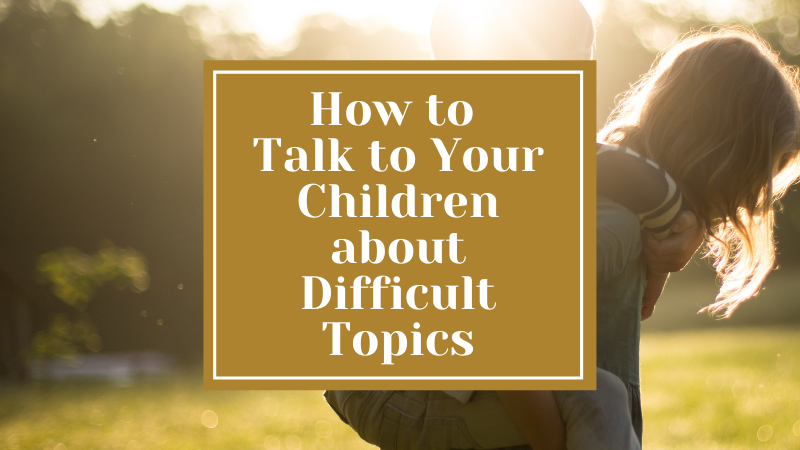If your children are still young, you may not have had the terrifying moment yet when you have to talk to your innocent, sweet child about a difficult topic, be it about sex ed, death, divorce, or other hard topics.
It seems so silly. We are the adults; we should not be scared to have tough conversations with our kids. We have been through it all ourselves—so why does it seem so tough?
It is probably down to the fact that our kids remind us of our last little bit of innocence. Their carefree, naïve attitude is so enticing, and we don’t want to be the ones to break their flow. Unfortunately, we don’t have a choice sometimes. Our kids are also masters at asking questions, they know when something is up, and they won’t stop asking until we tell them the truth.
There is also no point in lying to them. If they are at the right age, they deserve the truth. Rather deal with it instead of letting it get out of hand. Kids are super intuitive, and they are more understanding and emotionally intelligent than we think.
If you are unsure of how to tackle tough talks with your kids, here are some tips and a little bit of guidance that might help you through.
1. Kids understand simple best.
It might seem difficult and you might want to over-explain things, but try not to. Children understand and grasp concepts much easier when we keep things simple. Give them the basic facts in short sentences and make sure to use words they will understand.
If they ask questions, you can continue to expand and answer those questions but don’t go in with the plan to go over a hundred-point presentation to make sure you cover everything. That will quickly overwhelm your child.
2. Ask them questions.
As you work your way through the conversation, ask if they understand. Knowing that they are keeping up is important, you don’t want to spend ages talking just to find out you lost them at the beginning.
Also, keep on asking if they have any questions. They may be too overwhelmed to stop and ask, and they may need a little time and some prompting to verbalize their questions.
3. Read their emotions.
Try and pay attention to their facial expressions or tone. Identify their emotions, ask them how they are feeling, and let them know it is okay. If the topic makes them angry, let them explore this emotion, if it is upsetting them then it is perfectly okay for them to cry.
You need to create a safe space where they feel comfortable expressing their emotions.
4. Try to stay positive.
Depending on the topic, you need to keep your tone light and your words friendly. Try and stay on the more positive side of things, as difficult as it may seem. Your objective is to enlighten them, not scare them.
5. Leave the conversation open.
When you are done, let them know that you are always there for them to talk to. Encourage them to take time to think and to approach you with any questions whenever they feel like it.
They may have a lot more questions and confusion once they’ve had the time to process the initial conversation. Make sure they know that they can continue the conversation whenever they’re ready.
6. Keep it kid-friendly.
Depending on what the topic of conversation is, your child does not need all the details. Let them know what is relevant to them. Extra facts or concerns might just worry them or leave them confused. They deserve to know the truth about what’s going on, but they are still children.
7. Don’t look to them for support.
They might be your best friend, but your child is not equipped to deal with your emotions as well. Keep your worries, stresses, and anxiety hidden; they do not need to feel responsible for your emotions on top of their own.
Kids are great empaths, but they haven’t learned how to create their own boundaries. When they see their parents hurting, they will try to help and comfort their parents. They might even try to hide their own feelings so as to not add to your own. This isn’t healthy for a child.
8. Give them the reassurance they need.
It is so important to reassure them that they are okay. If it is quite a heavy topic, they might become overly anxious or stressed. They need to be told that they are safe and loved. You may need to be on top of them for a little while, just to keep an eye on how they are coping and to let them know that you are there for them.
Big news should not be for little kids, but sometimes we can’t avoid it. They seem to have a knack for knowing when something is up, and their ears are always listening, even when we think they aren’t. It might be scary approaching difficult topics with your kids, but you just need to remember that they can handle it with your love and support.
You May Also Like:




